Oxford Dictionary describes a leader as “a person who leads a group of people, especially the head of a country, an organisation, etc.” However, as a leadership program, Belgium’s 40 under 40 wants to expand this definition: Being a leader is not linked to a job title or a position. Leaders are role models, and as such, they inspire, influence and guide others towards a common vision, and we find leaders all around us. Leadership skills are universal, and they already develop from childhood. Children are influenced by their role models, and they refine their leadership skills in school, youth movements and their social circles. Eventually, they become leaders themselves, which does not require occupying a job in a senior position. Many actors of society are leaders, such as parents, teachers, youth animators, or care providers. The 40u40 Community agrees that leadership can be found in various spheres of life; and we want to acknowledge and highlight four hidden leadership roles of society today. They shape the lives and leadership skills of others from childhood through adulthood and their function as a role model emphasises the broader impact of leadership beyond traditional job titles.
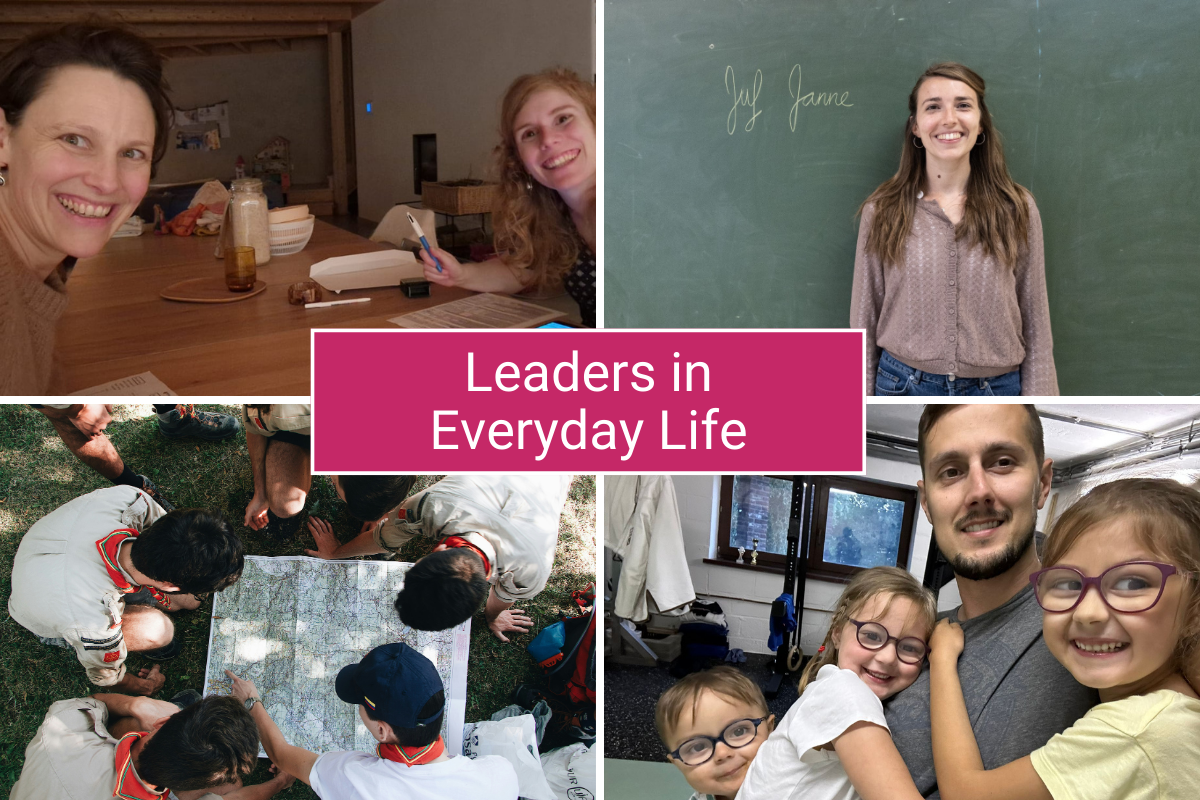
For Belgium’s 40 under 40 Co-Founder Pierre Gurdjian, “Leadership is the spirit in action: It is a combination of personal mastery and taking the courageous action to make the world a better place. Everybody can be a leader and has unique leadership skills I would call ‘brilliance’. It is up to everyone to discover their own brilliance and to find the best place to express it. In other words, leadership is not a possession, it is a mindset and everybody can tap into it. This mindset can emerge from an early age, and it develops and improves over time. Becoming a better leader is the work of a lifetime.”
Stephanie Wampach is an independent midwife who provides care before, during and after the birth. “It’s a complete follow up that I offer, it takes 12 to 18 months for each couple. In my day-to-day tasks, I conduct prenatal consultations, postnatal care, preparation classes and if the timing demands it, I’m on call 24 hours for a possible birth. It’s demanding, but I love to be a witness of new lives coming into this world and the transformation of the parents and to guide them through it. ”
Stephanie acts as a leader everyday: As a midwife, she plays a huge role in the new parent’s life, she acts as a coach and empowers them. “Pregnancy is a vulnerable point in people’s life, as a midwife, you need the right psychological skills to understand what the parents are going through, you need the appropriate attitude since you are the rock they might need in these turbulent times. It’s like coaching someone,” Stephanie says. Showing empathy and having patience are important, as well as having good decision-making skills: “Sometimes, you have to make decisions quickly and stay calm while doing so.” When attending a birth, there is no room for panic, coping with pressure is vital.
For Stephanie, there is more to being a midwife than delivering a healthy baby. You also “empower the parents, and give them back the responsibility they now have as a mother and father. It’s a moment that changes everything. I want to give them the security they need through this transformation,” she says. As a guide to the parents, Stephanie and her team act as role models and reassuring forces, helping new parents prepare for the leadership role they are about to take on as they bring a child into this world.
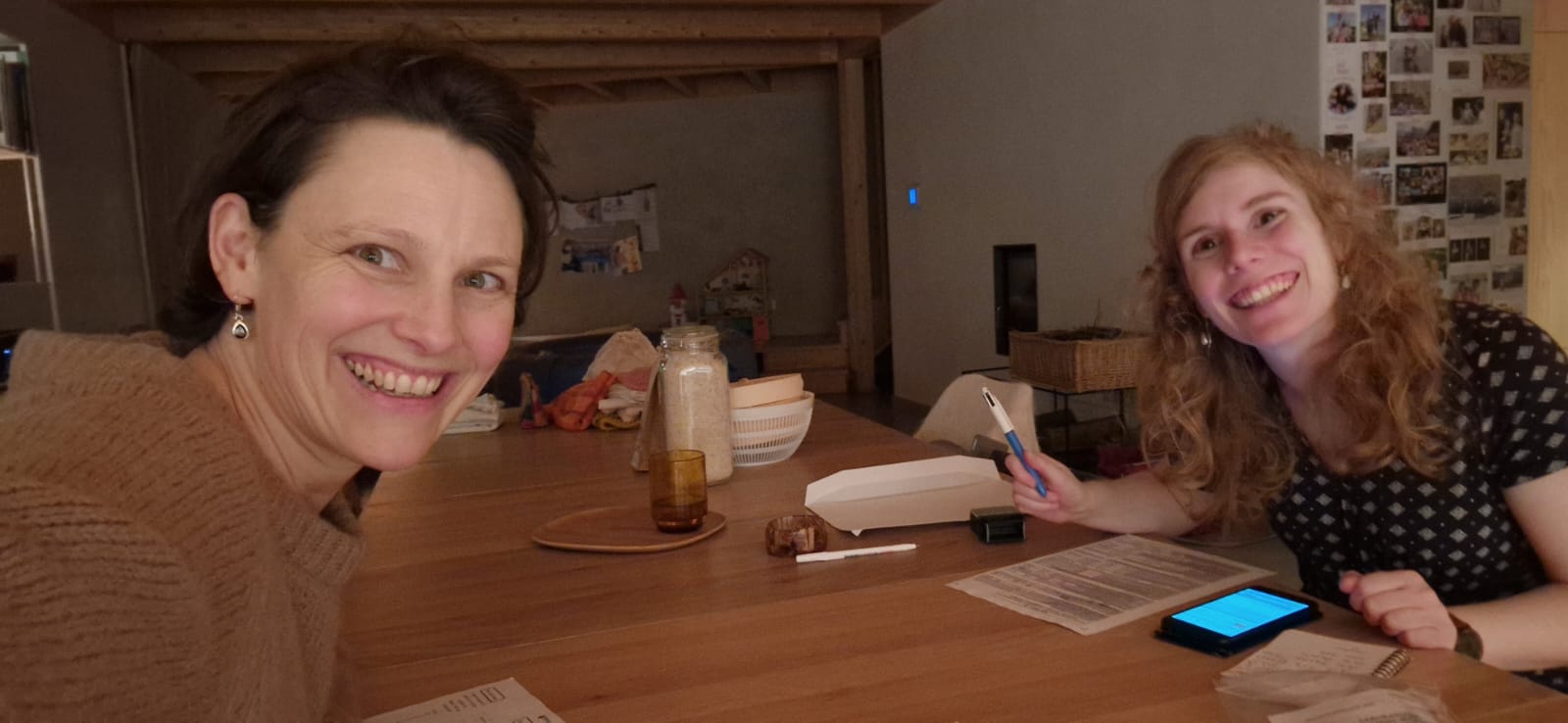
Being a parent means assuming the role of the leader within a family and having the responsibility to raise the citizens of tomorrow. For Fatima Mimouni, mother of three and a Fellow of Cohort 2023, “being a mother means being a leader of a family, it’s a big responsibility because you are impacting lives.” There are many leadership skills parents use: “As a parent you need to show empathy and vulnerability, and be good at communicating, listening is very important,” Fatima points out. “Your family is a team you bring together, you need to manage it and motivate it,” she says. Lionel Clermont, Cohort 2023 Fellow and father of three, adds that it’s important to find a good balance for empowering your kids, “you need to find a right balance between authority and trust, it’s not the goal to micromanage them, you need to encourage them,” Lionel explains. For Fatima, being a parent and deploying all these skills at home also improves her leadership in a professional setting: “At the end of the day, you realise you can manage a lot. Being a parent can be seen negatively in your career, but I think it brings something positive, it helps me as a leader, being a mom and saying I can also do it.”
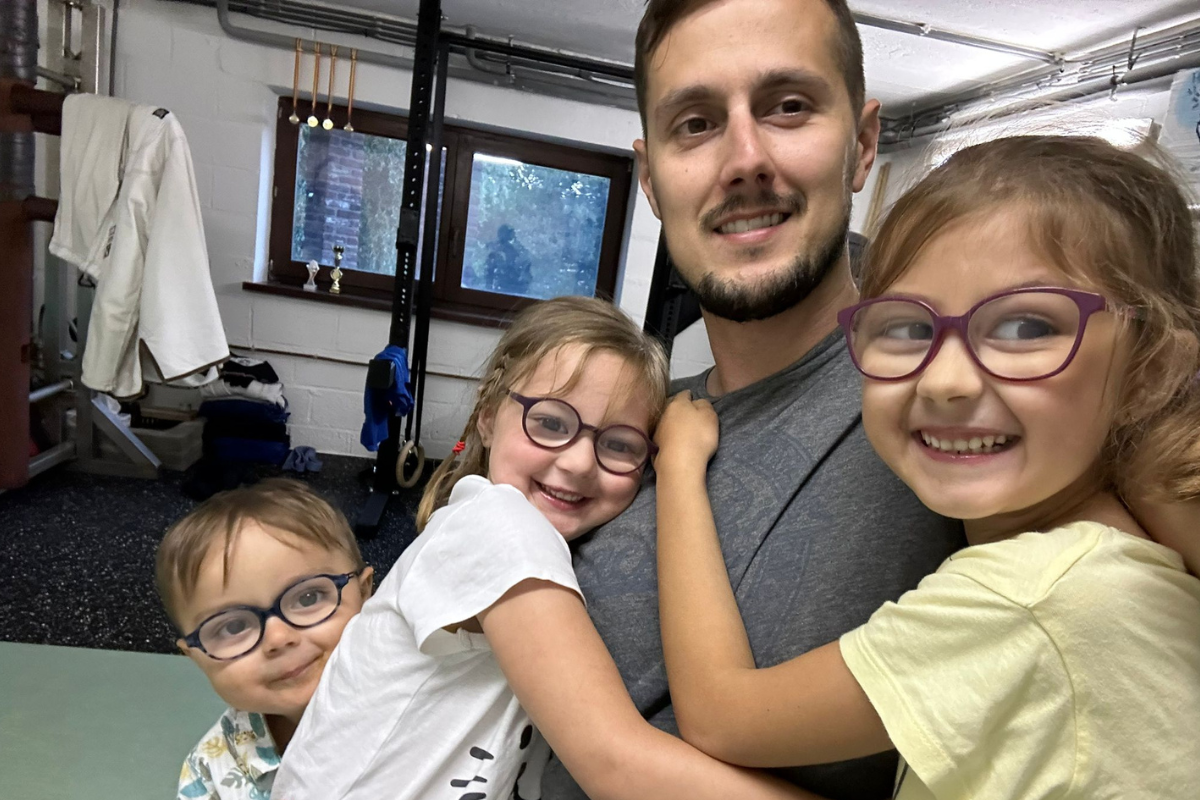
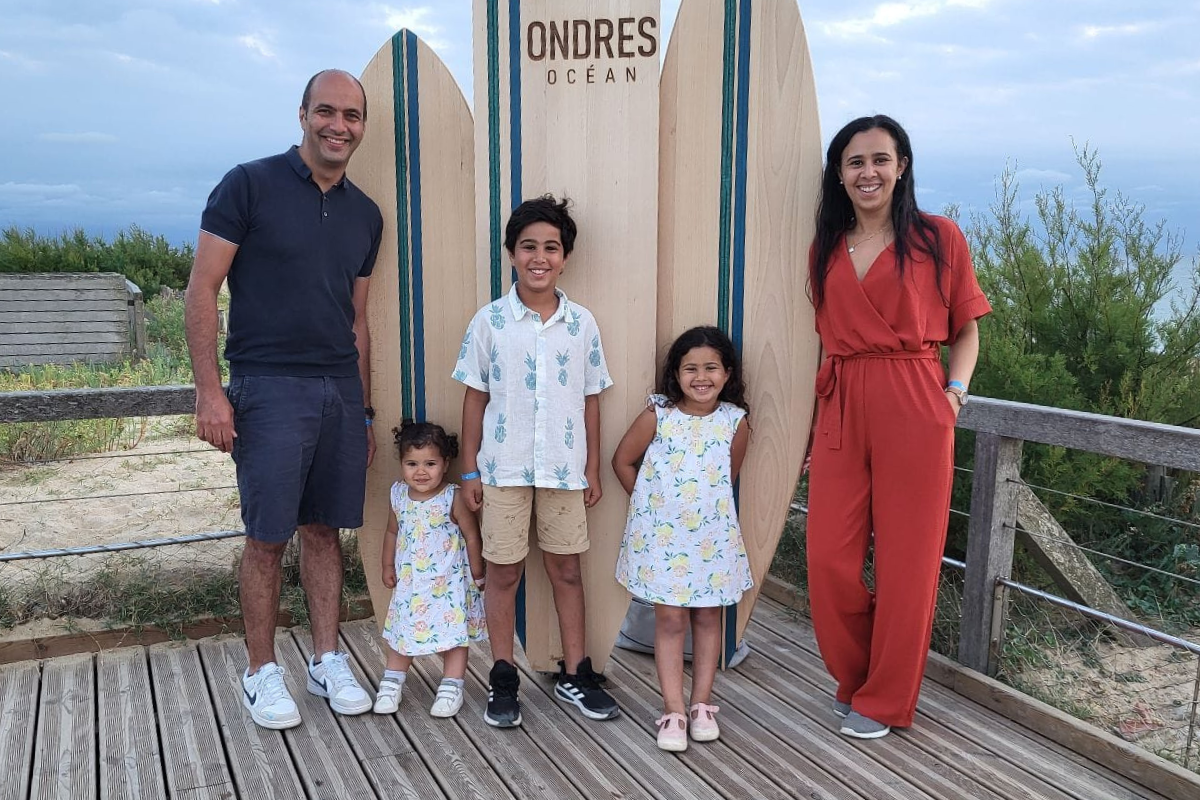
Parents showcase positive leadership at home by setting an example for their children, helping them grow with values and a sense of being. Next to parents, teachers also play a pivotal role as leaders, they act as role models and have a big impact on children and young adults as they grow, learn, and develop. 40u40 Alumni Janne Billiet and Luigi Sementilli are both teachers, Janne teaches at primary school, while Luigi has experience teaching in secondary school and in higher education. Many leadership skills are integrated in the daily life of a teacher.
Luigi points out that “you have to inspire the students, give them an appetite for knowledge. You need to motivate them to learn something.” In addition, spotting the potential in the students and nurturing it is another vital task. He explains his motivations for becoming a teacher: “I want to empower them and to give them all the tools to be an active citizen.” For Janne, the biggest encouragement to become a teacher was that “you can have a deep impact on your students.” She remembers one instance when she “noticed that almost none of my kids know where the library is, even though it’s a 10 minutes’ walk from our school. I thus organised a trip for the parents to the library, hoping they would take their kids regularly. In the end, we had 12 parents joining, which made me happy. This is also leadership for me as a teacher, seeing potential and acting on it. These little things can have a deep impact on the students.”
Teachers’ impact on the students goes beyond the hard skills. School life also can teach them how to treat others with respect and tolerance, how to interact with each other, they “learn to find solutions themselves and another skill they learn is critical thinking,” Janne points out, “They learn to become little leaders themselves.” Janne states that especially when teaching younger children, “you are very important in their lives, they watch how you act. For example, one mantra in my classroom is ‘making mistakes is necessary to learn.’ In the beginning, my students thought making mistakes is bad. I started to point out when I made a mistake, I explained I did something wrong, now I’m going to try again and improve. And they repeat it, they say to each other, ‘making mistakes is okay, you can try again.” Luigi points out that “you set an example, do what you expect them to do. Otherwise, as a leader and a teacher, you are not trustworthy.”
For Janne and Luigi, being a teacher is a big responsibility, but the impact they have is a huge reward. “The kids give me a lot of warmth, lots of love and enthusiasm. I think I also bring them stability and structure, so they can thrive, make mistakes, and learn new things and be critical as well,” Janne says. As a teacher, she concludes that children learn how to be leaders by following their role models, however “you cannot do it alone. You play a role, but there are also the kids’ parents, their family and their friends who have a big influence as well.”
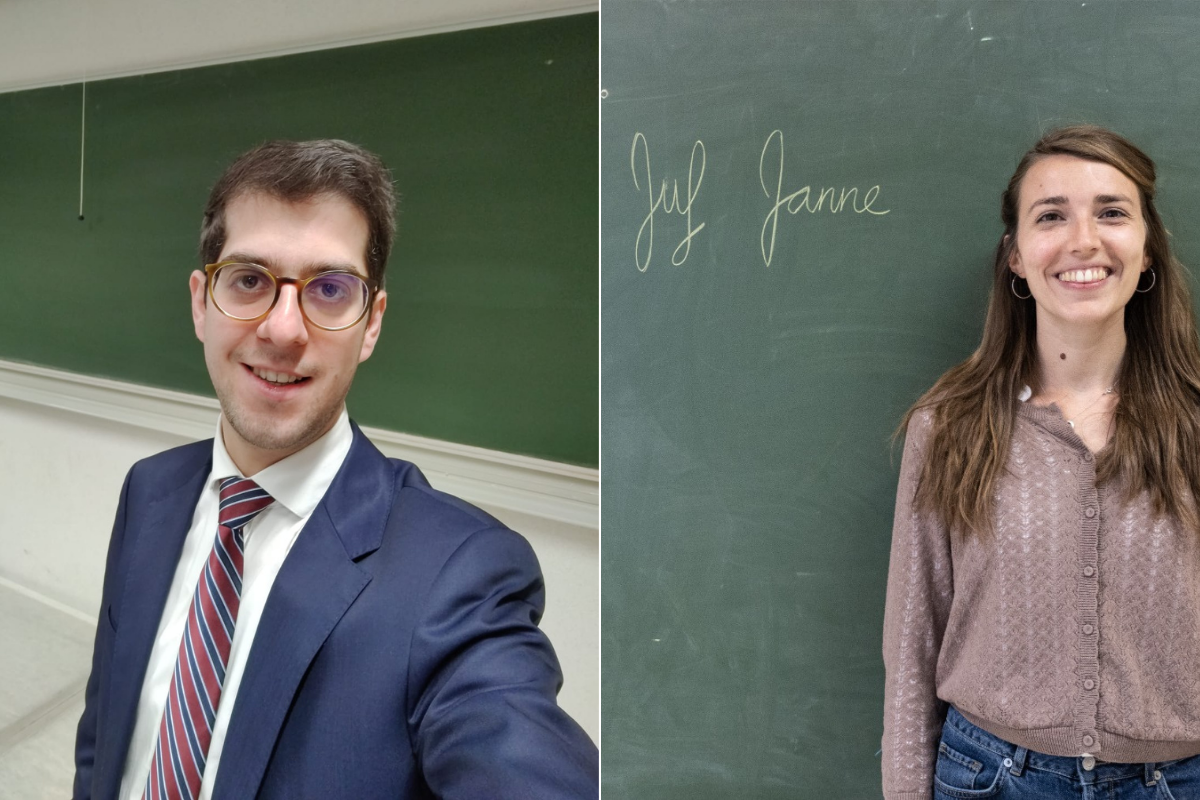
Children and young adults are influenced by many actors in their lives, and especially by their peers. Leadership is a skill not bound to age, there are many young leaders in society, for example in youth movements. Such organisations allow young adults to form and practise their leadership skills and to become role models themselves.
Cohort 2023 Fellow Dorien Vandormael was part of the Chiro, a youth movement active in Flanders, Brussels, and in East Belgium, as a participant and activity leader, while 40u40 Fellow Daan Neels was active in Akabe, a youth movement for disabled children. Daan points out that “being active in such an organisation is an opportunity for personal development for youngsters, a chance to take on responsibility and to develop leadership skills. As an activity leader in a youth movement, you learn how to manage a group and how to deal with kids. A big responsibility is also to make sure everyone can participate; you must take care of everyone.”
Dorien states that being a youth leader is fun and she learned some important leadership skills herself by doing so, such as “collaborative working and taking action together. As a leader, you must get energy from bringing people together, making them enthusiastic about something. With the Chiro, this could be something simple, like creating a Zipcar for example. You would see people working together, having one goal, and having fun together while chatting about life, this gives me energy,” Dorien shares. She also learned that “everybody has different talents and, in a team, this is an asset. And I think this is also a good leadership skill, to acknowledge that people have different tenants.” In addition, the youth movement was a creative outlet and a space for experiments for Dorien, and thus also a place to accept that failure is acceptable: “I learned a lot about just falling over and redoing stuff, trying again and then succeeding.” Daan and Dorien share a deep affection for their time in youth movements, the experience shaped them and their leadership skills as a young adult and paved the way for other endeavours further on.
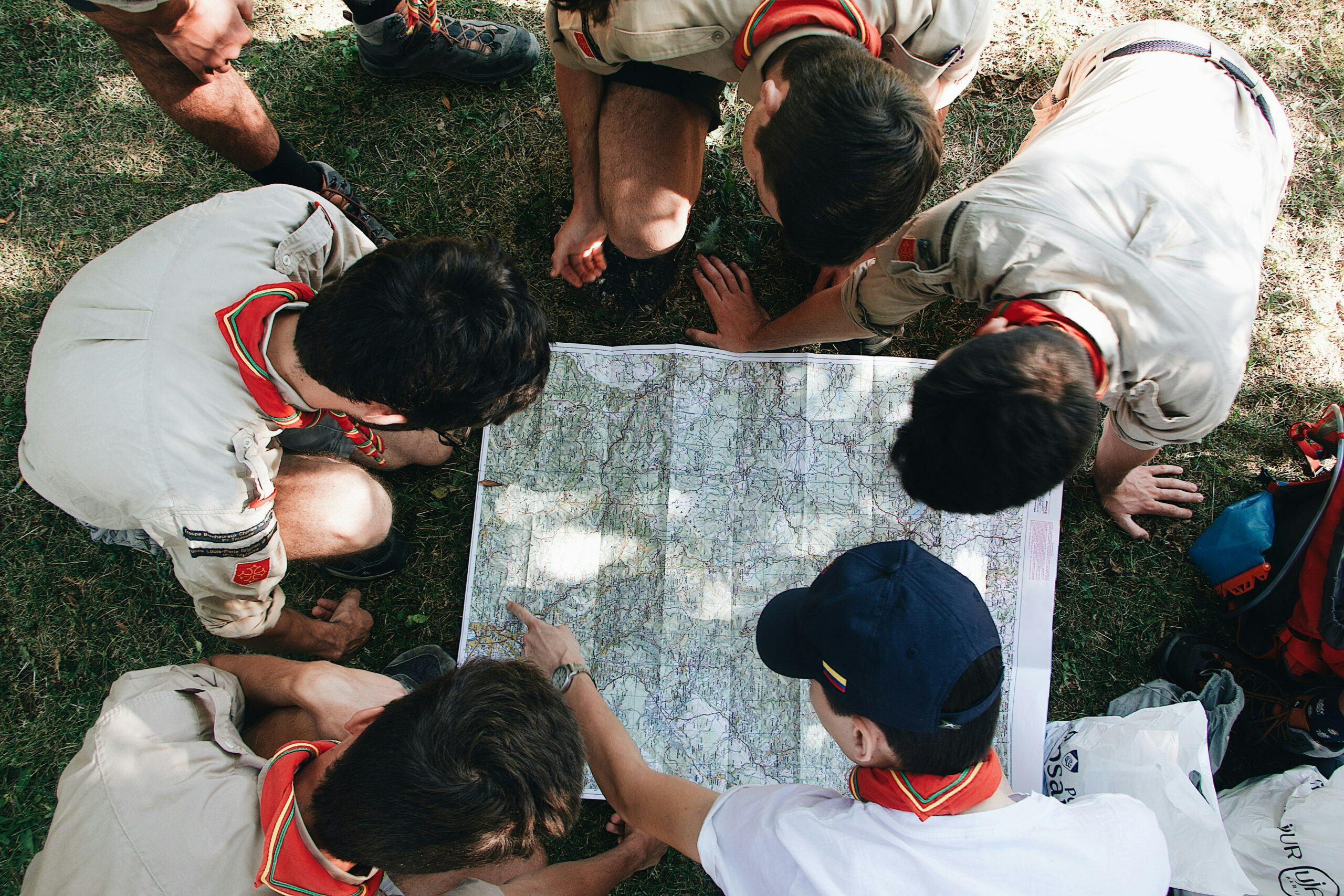
Testimonials from our Alumni emphasise that leadership skills are not tied to the corporate or political worlds, and the skills needed to lead can be learned, enhanced, and applied in various contexts. Children start to form their leadership skills early on, being influenced by role models and enacting and improving these skills in school, in youth movements and in their social circles. They grow up to become leaders themselves, which does not necessarily translate to reaching a senior job position. Leadership is not a one-size fits all definition, everyone can act as a leader in their professional or personal life: Midwives act as a guiding and reassuring force for parents, equipping them with skills needed for their role as a leader of a family. Parents lead a family and set an example for their children. Teachers are role models as well, they can spot and nurture potential in their students to help them develop their brilliance. They influence young adults, who act as leaders themselves, starting early for example by taking on responsibility in a youth movement, and continuing through life as an engaged citizen.
Everyone is capable of tapping into leadership skills. Teachers, parents, midwives, and youth animators are some of the hidden leaders of our society, their impact is huge, yet often overlooked. “The definition of leadership is changing, it is nowadays very much connected to ethics, to values, and it is high time we appreciate our teachers, nurses and so on, for being leaders. It is great to talk about them today, we should have done it already 10 years ago.”, Fatima concludes.
| Cookie | Duration | Description |
|---|---|---|
| cookielawinfo-checkbox-advertisement | 1 year | Set by the GDPR Cookie Consent plugin, this cookie is used to record the user consent for the cookies in the "Advertisement" category . |
| cookielawinfo-checkbox-analytics | 1 year | Set by the GDPR Cookie Consent plugin, this cookie is used to record the user consent for the cookies in the "Analytics" category . |
| cookielawinfo-checkbox-functional | 1 year | The cookie is set by the GDPR Cookie Consent plugin to record the user consent for the cookies in the category "Functional". |
| cookielawinfo-checkbox-necessary | 1 year | Set by the GDPR Cookie Consent plugin, this cookie is used to record the user consent for the cookies in the "Necessary" category . |
| cookielawinfo-checkbox-others | 1 year | Set by the GDPR Cookie Consent plugin, this cookie is used to store the user consent for cookies in the category "Others". |
| cookielawinfo-checkbox-performance | 1 year | Set by the GDPR Cookie Consent plugin, this cookie is used to store the user consent for cookies in the category "Performance". |
| CookieLawInfoConsent | 1 year | Records the default button state of the corresponding category & the status of CCPA. It works only in coordination with the primary cookie. |
| elementor | never | This cookie is used by the website's WordPress theme. It allows the website owner to implement or change the website's content in real-time. |
| JSESSIONID | session | New Relic uses this cookie to store a session identifier so that New Relic can monitor session counts for an application. |
| wpEmojiSettingsSupports | session | WordPress sets this cookie when a user interacts with emojis on a WordPress site. It helps determine if the user's browser can display emojis properly. |
| Cookie | Duration | Description |
|---|---|---|
| lang | session | LinkedIn sets this cookie to remember a user's language setting. |
| li_gc | 5 months 27 days | Linkedin set this cookie for storing visitor's consent regarding using cookies for non-essential purposes. |
| lidc | 1 day | LinkedIn sets the lidc cookie to facilitate data center selection. |
| Cookie | Duration | Description |
|---|---|---|
| _ga | 1 year 1 month 4 days | Google Analytics sets this cookie to calculate visitor, session and campaign data and track site usage for the site's analytics report. The cookie stores information anonymously and assigns a randomly generated number to recognise unique visitors. |
| _ga_* | 1 year 1 month 4 days | Google Analytics sets this cookie to store and count page views. |
| _gat_gtag_UA_* | 1 minute | Google Analytics sets this cookie to store a unique user ID. |
| _gcl_au | 3 months | Google Tag Manager sets the cookie to experiment advertisement efficiency of websites using their services. |
| _gid | 1 day | Google Analytics sets this cookie to store information on how visitors use a website while also creating an analytics report of the website's performance. Some of the collected data includes the number of visitors, their source, and the pages they visit anonymously. |
| CONSENT | 2 years | YouTube sets this cookie via embedded YouTube videos and registers anonymous statistical data. |
| Cookie | Duration | Description |
|---|---|---|
| li_alerts | 1 year | Description is currently not available. |
| Cookie | Duration | Description |
|---|---|---|
| bcookie | 1 year | LinkedIn sets this cookie from LinkedIn share buttons and ad tags to recognize browser IDs. |
| bscookie | 1 year | LinkedIn sets this cookie to store performed actions on the website. |
| IDE | 1 year 24 days | Google DoubleClick IDE cookies store information about how the user uses the website to present them with relevant ads according to the user profile. |
| test_cookie | 15 minutes | doubleclick.net sets this cookie to determine if the user's browser supports cookies. |
| VISITOR_INFO1_LIVE | 5 months 27 days | YouTube sets this cookie to measure bandwidth, determining whether the user gets the new or old player interface. |
| VISITOR_PRIVACY_METADATA | 6 months | YouTube sets this cookie to store the user's cookie consent state for the current domain. |
| YSC | session | Youtube sets this cookie to track the views of embedded videos on Youtube pages. |
| yt-remote-connected-devices | never | YouTube sets this cookie to store the user's video preferences using embedded YouTube videos. |
| yt-remote-device-id | never | YouTube sets this cookie to store the user's video preferences using embedded YouTube videos. |
| yt.innertube::nextId | never | YouTube sets this cookie to register a unique ID to store data on what videos from YouTube the user has seen. |
| yt.innertube::requests | never | YouTube sets this cookie to register a unique ID to store data on what videos from YouTube the user has seen. |